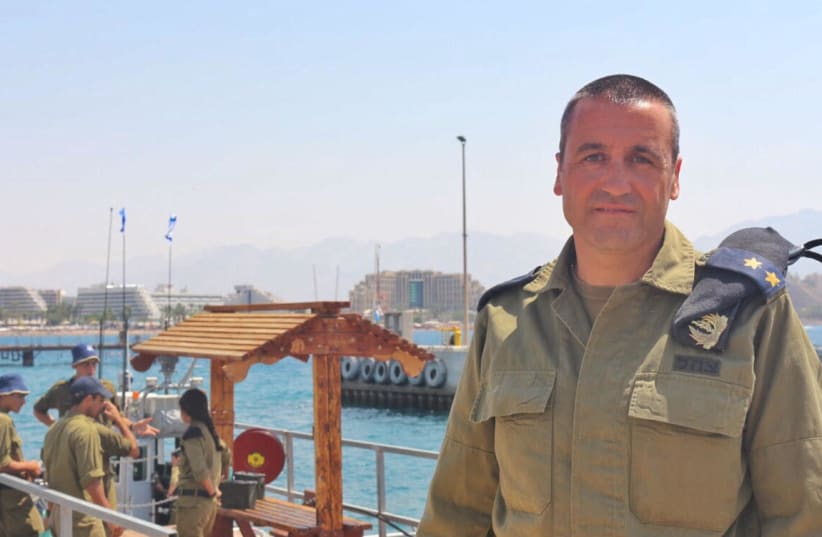Located at the northern tip of the Red Sea, vacationers in Eilat need just turn their heads to see neighboring Jordan and Egypt, and even Saudi Arabia.At the country’s most popular resort city, thousands of locals and tourists flock to the waters, sometimes leading them to mistakenly cross maritime boundaries.And while it’s mostly Israeli tourists who end up on the wrong side of the border, whenever someone crosses into Israel he is initially treated suspiciously. The IDF’s Eilat Naval Base commander, Cmdr. Oren Nahbas, told The Jerusalem Post that last April a Jordanian tried to cross and was brought in and investigated.
“His crossing was not by accident.”Nevertheless, “it’s my job to make sure that tourists don’t feel our presence here,” Nahbas said on his final sail on the Red Sea, passing groups of vacationers in the water.Nahbas said that while there is no direct interaction with the Jordan or Egyptian navies, there is effective communication between all sides. Nahbas said he doesn’t think there will be anything with Saudi Arabia in the near future, despite the rapprochement rumors, stating that if there ever would be it would be under the radar.Nonetheless, all three countries understand the terrorism risk to the tourists who flock to the sandy beaches and coral reefs.Egypt has seen several major attacks by Islamic terrorists in recent years, including the downing of a Russian jet over Sinai last year, which killed all 224 people aboard. In February 2014, three Koreans and an Egyptian driver were killed in a terrorist bomb blast near the border crossing between Egypt and Israel.The bus was traveling from St. Catherine’s Monastery, a popular tourist destination in southern Sinai, to nearby Israel when it was attacked by Ansar Beit al-Maqdis, a group that shortly after the attack pledged allegiance to Islamic State.ISIS members have also infiltrated via the water, including a deadly attack in mid-July that left two Ukrainians dead and four others wounded in a stabbing spree by a man who had swam into the Red Sea resort of Hurghada.While such water-borne infiltrations have not occurred in Eilat, Nahbas warned that “terrorism has no borders. We must stop them from getting here, and if they do succeed in getting into Israeli waters then we must be able to stop them.”In March of last year, Nahbas played a central role in organizing a large drill simulating an Islamic State hijacking of a boat with Israeli civilians onboard. Members of the navy’s elite Flotilla 13 commando unit, missile boats, regional security forces and paramedics took part.“The drill was challenging. It was a logistical challenge that I had never done before but it was a necessary drill that hadn’t happened in years. We saw there was a need to do the drill because of what was happening in the area.”After 27 years in the IDF, Nahbas retired from service Tuesday.“I’m ending my service on the sea. A commander at sea is always at sea,” Nahbas said, adding that he always felt a connection to the sea and was honored to have served as base commander for the past two years.“It’s weird to end something that you’ve done all of your life... to wake up and not know what you will be doing during the day,” he said, adding that despite his retirement, he will never be able to stop thinking of the country’s security.Patrolling and Protecting Eilat
'The Post' joins base commander Oren Nahbas on his final sail.
